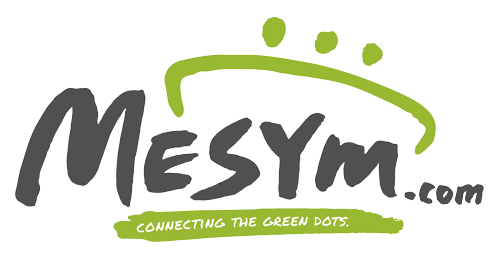IEN Consultants
More than 10 years of experience and expertise in energy efficiency and sustainable building design, planning and certification.

Loading pure awesomeness, please wait...
Many thanks to our Sponsors and Supporters:
More than 10 years of experience and expertise in energy efficiency and sustainable building design, planning and certification.
Gurmit holds an Electrical Engineering degree from the University of Malaya. He has been a corporate member of the Institution of Engineers Malaysia since 1974.
less...
Genetically modified corn
According to the Ministry of Health of Malaysia, GMO (or genetically modified organism) is defined to be “an organism in which the genetic material has been changed through modern biotechnology in a way that it does not occur naturally by multiplication or natural recombination or both”.
While humans have traditionally tried to cultivate better crops with methods such as cross-pollination or cross breeding, genetically modifying organisms involve manipulating the genes of the organism directly. Genetic modification is often done through the insertion of a foreign gene from another species, creating what is called a transgenic plant or animal. Common transgenic plants include corn, soybeans, and cotton; transgenic animals are less widespread but include pigs, sheep and cattle.
GMOs bring important implications for human health and the environment. The debate for and against GMOs has been raging for years. The proponents of GMOs argue that genetically engineered crops are more resilient and have a higher yield, introduce fewer pesticides to the environment, and pose no real threat to human health. Genetic engineering is also able to bring about desired traits in organisms at a much quicker pace, while traditional farming would need several years to reach the same (or weaker) outcome.
On the other side of the fence, opposing voices argue that insufficient research on the topic means that the consequences of consuming GM food are largely unknown. The unnatural introduction of genes from another species may cause allergens to spread into non-allergenic food, increased antibiotic resistance, or increased toxicity. Genes extracted from animals (to be inserted into plants) raise ethical, religious and health concerns. With regards to the environment, GMOs threaten bio-diversity through contaminating non-GMO crops (through interbreeding), and creating “superweeds” or “superpests” that are resistant towards pesticides developed for widely cultivated GMOs. According to the Malaysian Organic Scheme, GMOs (and products derived from GMOs) cannot be used in any aspect of organic production and handling. There is no exception to this rule.
Information from both sides of the debate is readily available on the Internet. For those who are interested, the American Radioworks provides a fairly well balanced overview of the arguments.
Without taking one side or the other of the GMO debate, it is a consumer right to have more information about what you are buying and consuming. Malaysia is one of 64 countries in the world that mandate labelling on GM food. After reading through the guidelines on GMO labelling, we present to you some quick facts:
The regulatory framework with regards to GMOs covers pre-market approval, enforcement, and post-market monitoring. The related laws are:
Click to enlarge:
The labelling requirements shall only apply to the three main ingredients in the ingredient list. For GMOs that have genes derived from animals and ingredients that have been known to cause allergies, the label will have to state the origin of the gene, like: “gene derived from (origin)”.
The product will not be labelled when GMO content is not more than 3% of the food ingredients, “provided that this presence is adventitious [i.e. by chance] or technically unavoidable.”
Exempted products include:
However, products will not be exempted when the gene is derived from animal products and substances that cause hypersensitivity. Highly refined foods with altered characteristics (i.e. they have different characteristics from the same ingredient that has not been genetically modified, in terms of nutritional value, toxicity or allergenic properties) will not be exempted as well.
The labelling logic can be understood from these flowcharts (click to enlarge):
The regulations will be enforced in July 2014.
It is important for the public to be aware of the regulations on GMOs, and the enforcement date. The enforcement date of GMO labelling has been delayed once already, from July 2012 to July 2014. When public awareness is low, it is easy for lobbyists to push for extensions over and over again, causing the enforcement of the regulation to be indefinitely delayed.
—
Join us this Saturday at CETDEM’s Hari Organik and learn more about GMOs (see event here). Magaeswari Sangaralingam from Consumers Association of Penang (CAP) will be there to talk about potential threats of GMOs.
—
References:

MESYM.com is a crowd-sourced platform and a living database for environmental movements in Malaysia. There are many good actions being done out there. Our goal is to bring them together. We connect the green dots.
Please copy/paste the html code below into your website.
Please select and copy (Ctrl + C) the URL below.
Please select and copy (Ctrl + C) the URL below.